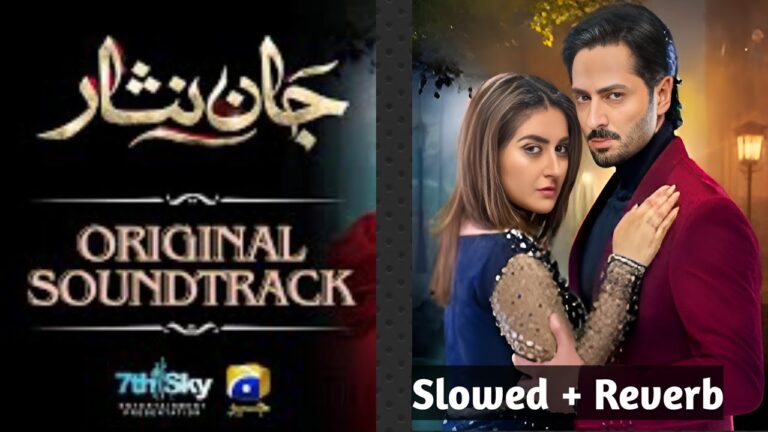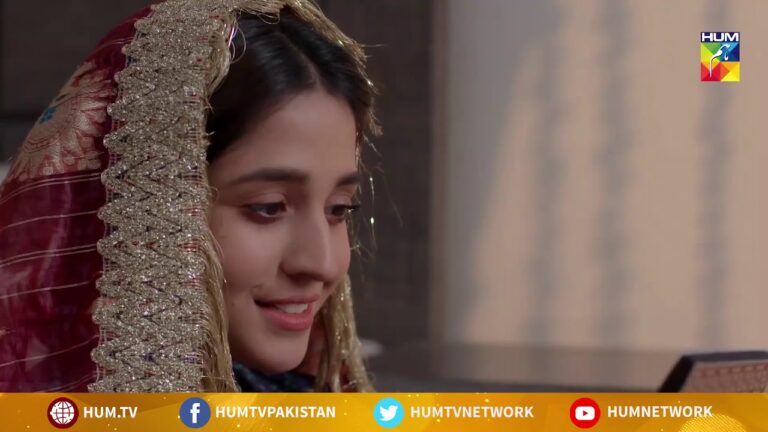Ezel Drama Review: “Ezel” is a Turkish drama series that has captivated audiences with its intricate storytelling, strong character development, and thematic depth. Produced by Ay Yapım and directed by Uluç Bayraktar, the series originally aired on Show TV from September 28, 2009, to June 20, 2011. The series stars Kenan İmirzalıoğlu, Cansu Dere, Yiğit Özşener, and Barış Falay in lead roles. This review delves deeply into the various elements that make “Ezel” a standout series, examining its plot, characters, themes, cinematography, and overall impact.
Plot Overview
“Ezel” tells the story of Ömer Uçar (Kenan İmirzalıoğlu), a young man who is betrayed by his best friends and fiancée and framed for a crime he didn’t commit. After spending years in prison, Ömer returns with a new identity—Ezel—to exact revenge on those who wronged him. The series is a modern retelling of Alexandre Dumas’ classic novel “The Count of Monte Cristo,” set against the backdrop of Istanbul.
The plot is characterized by its complexity and numerous twists, as Ezel meticulously plans and executes his revenge while grappling with his lingering feelings for his former fiancée, Eysan (Cansu Dere). The narrative oscillates between past and present, revealing the backstories and motivations of the characters, thus enriching the storyline with layers of intrigue and emotional depth.
Character Analysis
Ezel Bayraktar / Ömer Uçar: Kenan İmirzalıoğlu delivers a compelling performance as the protagonist. As Ömer, he is the epitome of innocence and trust, but as Ezel, he becomes a figure of calculated vengeance. İmirzalıoğlu masterfully portrays the transformation from a betrayed man to a vengeful mastermind, capturing the internal conflict and emotional scars that drive his quest for revenge.
Eysan Atay: Cansu Dere plays Eysan, Ömer’s former fiancée and one of his betrayers. Eysan is a complex character—beautiful, manipulative, and deeply conflicted. Dere’s portrayal adds depth to Eysan, making her both a femme fatale and a tragic figure caught in the web of her own deceit.
Cengiz Atay: Yiğit Özşener’s Cengiz is Ömer’s former best friend and one of the architects of his betrayal. Cengiz is ambitious, greedy, and willing to do whatever it takes to maintain his newfound status. Özşener brings a chilling ruthlessness to the character, making him a formidable antagonist.
Ali Kırgız: Barış Falay plays Ali, another of Ömer’s betrayers who was once like a brother to him. Ali’s character is marked by his loyalty to Cengiz and his internal struggle with the guilt of betraying Ömer. Falay’s performance captures Ali’s complexity, making him one of the more nuanced characters in the series.
Ramiz Karaeski: Played by Tuncel Kurtiz, Ramiz is a mentor figure to Ezel, providing wisdom and guidance as he seeks revenge. Ramiz’s character, with his own dark past and sage-like presence, adds a layer of depth and intrigue to the series. Kurtiz’s portrayal is both powerful and endearing, making Ramiz a standout character.
Themes
“Ezel” explores several profound themes that resonate with viewers:
Revenge and Redemption: At its core, “Ezel” is a tale of revenge. The series delves deeply into the moral ambiguities of vengeance, questioning whether it can truly bring peace or redemption. Ezel’s journey is as much about seeking justice as it is about grappling with his own need for closure and forgiveness.
Betrayal and Trust: The series intricately examines the impact of betrayal on relationships and trust. Ömer’s transformation into Ezel is driven by the ultimate betrayal from those he loved most. This theme is explored through the complex dynamics between the characters, each grappling with their own betrayals and the consequences thereof.
Identity and Transformation: Ezel’s new identity is both a mask and a means of empowerment. The series explores how identity can be fluid, shaped by experiences and choices. Ömer’s transformation into Ezel raises questions about whether we can ever truly escape our past or if it continually shapes our present.
Love and Sacrifice: Love, in its various forms, is a central theme. Ezel’s lingering love for Eysan complicates his quest for revenge, adding emotional depth to the narrative. The series also explores the sacrifices made in the name of love, whether for family, friends, or romantic partners.
Cinematography and Production Design
“Ezel” stands out for its high production values and stylish cinematography. The visual aesthetics of the series enhance the storytelling, with Istanbul’s vibrant and diverse landscapes serving as a dynamic backdrop. The use of light and shadow, coupled with dramatic camera angles, accentuates the tension and emotional intensity of the narrative.
The production design effectively contrasts the opulent world of Istanbul’s elite with the darker, grittier aspects of the city. This visual dichotomy mirrors the series’ thematic exploration of duality—between past and present, innocence and corruption, love and vengeance.
Music and Soundtrack
The soundtrack of “Ezel,” composed by Toygar Işıklı, is another standout element. The music plays a crucial role in setting the tone and enhancing the emotional impact of the series. The haunting main theme and the carefully curated background scores underscore the drama and tension, adding depth to key scenes and character moments.
Cultural Impact and Reception
“Ezel” received widespread acclaim and became a cultural phenomenon in Turkey and beyond. Its intricate plot, strong performances, and thematic depth resonated with a broad audience, making it one of the most popular Turkish dramas of its time. The series has been broadcast in numerous countries, contributing to the global popularity of Turkish television dramas.
The chemistry between the lead actors, particularly Kenan İmirzalıoğlu and Cansu Dere, was widely praised. Their performances brought depth and authenticity to their characters, making the complex relationships and emotional stakes compelling and relatable.
“Ezel” also sparked discussions on social media and among critics about its themes and character arcs, further cementing its status as a significant work in contemporary Turkish television. The series’ success helped pave the way for other Turkish dramas to gain international recognition, showcasing the genre’s potential for high-quality storytelling and production.
Criticisms
While “Ezel” was widely acclaimed, it was not without its criticisms. Some viewers found the plot’s complexity and numerous twists to be occasionally convoluted, making it challenging to follow. The series’ reliance on dramatic reveals and cliffhangers, while effective in maintaining suspense, sometimes felt excessive and contrived.
Additionally, the pacing of the series, particularly in the middle episodes, was seen by some as slow, with certain story arcs being prolonged. This extended storytelling format, while common in Turkish dramas, may not appeal to viewers accustomed to more concise narratives.
Another criticism was the portrayal of female characters. While Eysan is a central and complex character, some supporting female roles were less developed and tended to fall into stereotypical portrayals, reflecting broader societal norms that can appear regressive.
Conclusion
“Ezel” is a remarkable Turkish drama that offers a rich and engaging narrative, memorable characters, and a thoughtful exploration of timeless themes. Its success lies in its ability to blend revenge, love, and moral ambiguity into a cohesive and compelling story. The series stands out for its strong performances, particularly by Kenan İmirzalıoğlu and Cansu Dere, its high production values, and its emotional depth.
The show’s ability to engage viewers with its intricate plot, well-developed characters, and thematic resonance makes it a noteworthy entry in the world of Turkish dramas. Despite some criticisms regarding plot complexity and pacing, “Ezel” remains a powerful story about identity, betrayal, and the quest for redemption.
For viewers seeking a drama that delves into the complexities of human emotions and moral dilemmas, “Ezel” provides an excellent and rewarding viewing experience. Its impact on both domestic and international audiences underscores the universal appeal of well-crafted storytelling, making it a significant and influential work in the landscape of Turkish television dramas.
Detailed Analysis of Key Aspects
The Transformation of Ömer to Ezel
The transformation of Ömer into Ezel is a central theme of the series. Ömer’s journey from an innocent and trusting young man to a vengeful and calculating figure is portrayed with meticulous detail. This transformation is driven by profound betrayal and a desire for justice. Kenan İmirzalıoğlu captures the nuances of this transformation, portraying Ezel’s internal conflict and the toll of his quest for revenge. This character arc raises questions about identity and the impact of past experiences on the present.
The Complexity of Eysan Atay
Eysan Atay, played by Cansu Dere, is one of the most complex characters in “Ezel.” Eysan’s role in Ömer’s betrayal is central to the plot, yet her motivations and internal conflicts make her more than just an antagonist. Eysan’s love for Ömer/Ezel and her entanglement with Cengiz create a web of emotional turmoil. Cansu Dere’s portrayal of Eysan captures this complexity, making her a character that viewers can both sympathize with and despise.
The Role of Ramiz Karaeski
Ramiz Karaeski, played by Tuncel Kurtiz, serves as a mentor and father figure to Ezel. Ramiz’s own dark past and his wisdom provide depth to the narrative. His philosophical musings and guidance help shape Ezel’s journey, making Ramiz a pivotal character. Kurtiz’s performance adds gravitas to the series, making Ramiz one of its most memorable characters.
Thematic Depth
“Ezel” explores themes of revenge, betrayal, identity, and love with considerable depth. The series does not offer easy answers but instead delves into the moral ambiguities and emotional complexities of its characters. The exploration of these themes is what gives “Ezel” its lasting impact and makes it a compelling narrative.
Cinematic Excellence
The visual and auditory elements of “Ezel” significantly enhance its storytelling. The cinematography captures the beauty and complexity of Istanbul, while the soundtrack by Toygar Işıklı adds emotional resonance to the series. The use of light, shadow, and dramatic camera angles contributes to the overall atmosphere, making “Ezel” a visually and emotionally engaging series.
Conclusion
“Ezel” is a standout Turkish drama that excels in storytelling, character development, and thematic exploration. Its intricate plot, strong performances, and high production values make it a must-watch for fans of drama series. Despite some criticisms, “Ezel” remains a powerful and influential work that continues to resonate with audiences both in Turkey and around the world. The series’ ability to blend complex characters with a compelling narrative ensures its place as a significant work in contemporary television.










+ There are no comments
Add yours